Campfire Grilled Freshwater Trout
5 min readOutdoor Cooking
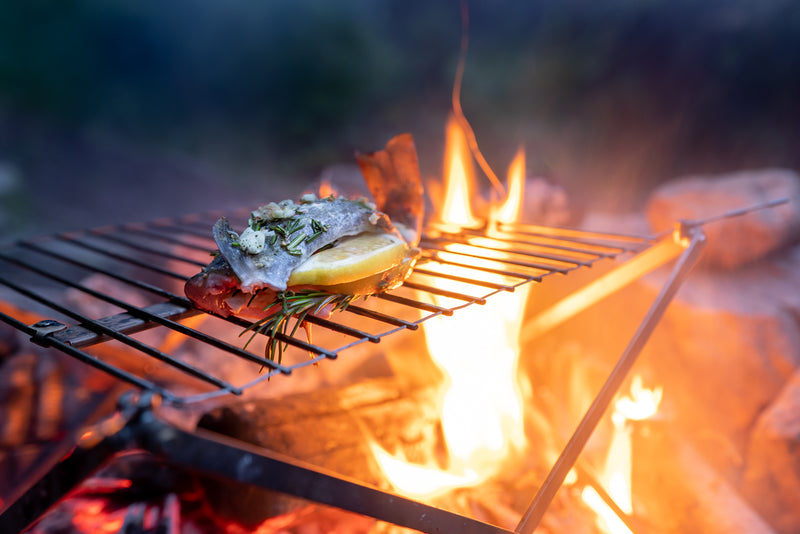
Photographer: Katie Botwin
You shovel a fish off the grill and take a bite that just about burns your mouth. The savory aroma of butter fills the air, lemon juice drips between your fingers, to say the least, you’re in heaven. Then, you hear a buzzing. A mosquito. You whack at it. Gah! It evaded you! Again, you go for it…and slap yourself awake. Ah shoot. No fish in sight, no butter, not even a drip of lemon juice. Fluttering eyes remind you that you laid down for a quick nap after that 9 miles of grueling trail you put in today. Stomach grumbling, you peak in your pack. What to eat. Dehydrated food or dehydrated food? Hmmm.
Never fear! We want to help you replace unappetizing dehydrated options with the mouthwatering, flaky, and fresh fish you were just dreaming about. In this installment of Wolf and Grizzly’s Campfire Cooking, we bring you this delectable Grilled Freshwater Trout recipe—which is simple enough to create when you’re miles from a kitchen. If you’re going to be purchasing your fish from a store, great! Skip right down to the recipe section of this blog. If you plan on fishing for your supper, keep on reading.
Responsible Fishing
Responsible fishing is key to keeping our ecosystems happy and healthy. There are a plethora of ways to become a responsible fisher-person, and we’ll list a few here, but make sure to complete your own research on how to stay responsible when fishing.
Here at Wolf and Grizzly, we always emphasize practicing the 7 Leave No Trace Principles. Please check out the Leave No Trace website to learn more about why these principles are essential for creating minimum impact on the environment.

Photographer: Katie Botwin
Catch and Release
Practicing catch and release is the foremost way to help fish continue to healthily reproduce in the ecosystem. This means that, no, we do not recommend always catching fresh fish for dinner. However, if you are in an area with both a healthy fish population and low-stress water conditions, catching to keep can be practiced in moderation—assuming you’re following the rules
Rules and Regulations
Most bodies of water have fishing regulations. Before you pull on your waders or hop in a boat, make sure you have read up on topics like catch and release rules of your specific location. Also, it’s important to be able to identify native and non-native species in your area, as regulations can vary from species to species. Lastly, you’ll want to make sure you have purchased a valid fishing license.
Avoid Stressful Water Conditions
High water temperature and low water levels are just a few types of water conditions that lead to stressed fish. Make sure to identify what the fishing conditions are like in your area.
Avoid Live Bait
Using live bait can introduce non-native species into the environment. That’s just one reason why we prefer fly fishing, and you can purchase flies from your local fishing shop. If you’re looking to get creative, you can purchase a fly tying kit and tie your own!
Wash your Gear
Washing your gear can help eliminate the introduction of non-native species. Always try to wash your gear before and after your trip, especially if you are traveling from one body of water to another.
 Photographer: Robson Hatsukami Morgan
Photographer: Robson Hatsukami Morgan
Let’s Talk Fishing
Catching fresh fish can add variety to your backpacking diet in a big way. The thing is, fishing isn’t always the easiest sport. So before you buy gear, strap it to your pack, and expect to feed yourself on the trail, let’s cover the basics.
Learn How to Fish
That’s right— we recommend learning how to fish before you expect to feed yourself using nothing but a stick and fake bug. Odds are, with the temptation of a cold 6-pack, you can recruit a friend who knows their stuff to take you on the river for a day.
If not, you can visit your local fishing shop and hire a guide. Even if you aren’t hiring a guide, you can stop in to pick up gear, restock on flies, and see which rivers are producing. If neither of these are a possibility for you, try studying up on different fishing books and tutorials online, then head to your local watering-hole and try testing out what you learned.
Catching and Cleaning
Always practice humane methods of dispatching your fish. Make sure you learn these techniques from someone experienced, as you do not want your fish to suffer for the sake of your meal. Wolf and Grizzly Tip: We always like to say a small thank you to the fish, as we believe it’s important to recognize the life you are taking.Similarly, learning how to clean from an experienced angler will help ensure you are successful the first time you clean a fish on your own.

Photographer: Katie Botwin
The Cooking of the Fish
Now for the tasty part. To help your taste buds get a little more stoked in the backcountry, we crafted this simple recipe for grilling delicious freshwater trout. This recipe can, of course, be utilized when car camping or grilling in your backyard—you’ll just get to add as many seasonings as you want, not as many as you can carry.
The Recipe:
Ingredients
-
1 Freshwater Trout, cleaned
-
Olive Oil
-
1 lemon, sliced
-
Rosemary to taste
-
Garlic to taste, chopped
-
Spices to taste (we go with garlic salt and lemon pepper)
Steps
-
Build your fire and place your WG Grill at your desired height. Try to develop a healthy bed of hot coals.
-
Clean the fish.
-
Lightly drizzle olive oil on both sides of the fish and inside the cavity.
-
Stuff the cavity with lemon slices, chopped garlic, and a rosemary sprig.
-
Add spices to both sides.
-
Sprinkle chopped garlic and rosemary on top.
-
Place seasoned and stuffed fish on WG Grill.
-
Cook time is dependent on fire temperature, so cook until fish is white and flaky, making sure to flip once.
-
Carefully remove from grill top, pour yourself a cold beer, and enjoy!

Campfire Butter Paneer Curry
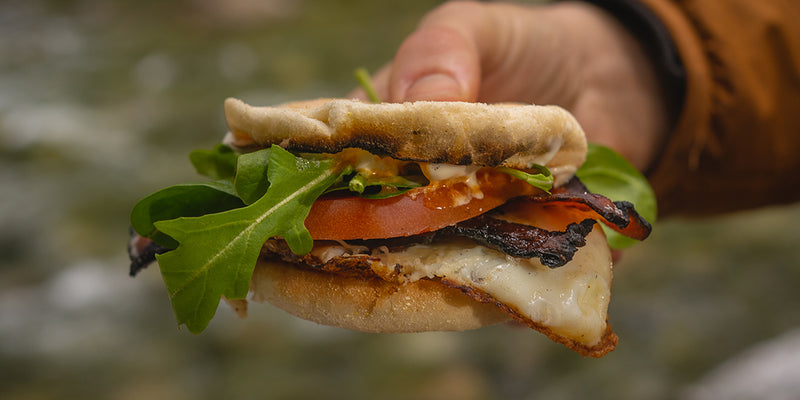
Backcountry BLT Breakfast Sandwich
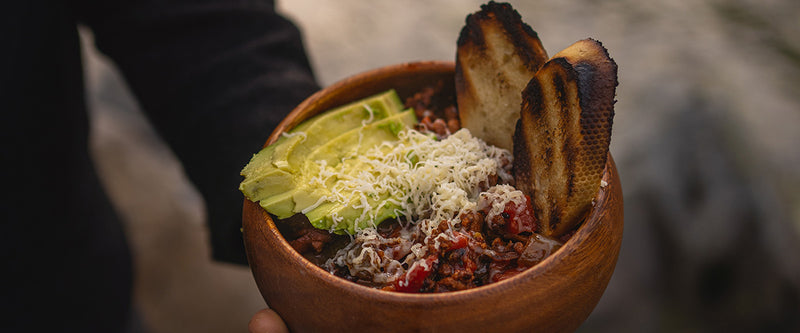
Blackened Poblano Chorizo Chili
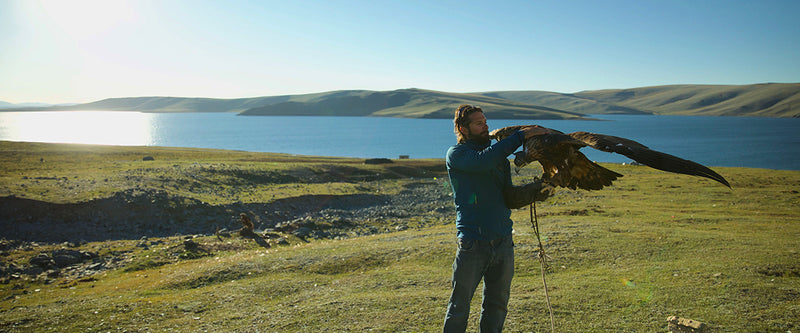
Hunting Partner: Mastering the ancient art of falconry
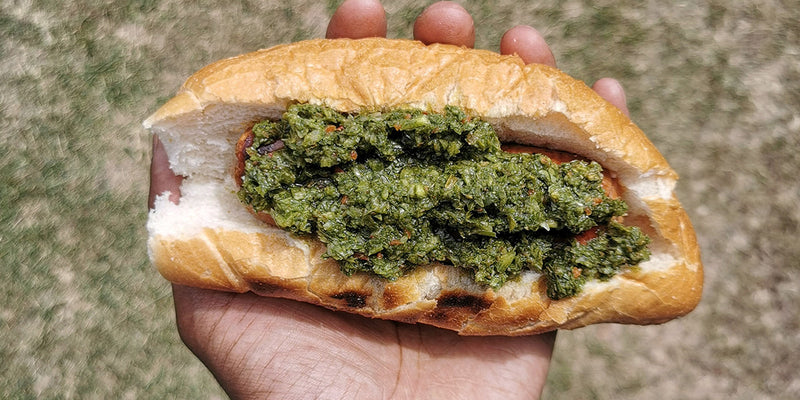
Choripan: Grilled Chorizo with Chimichurri
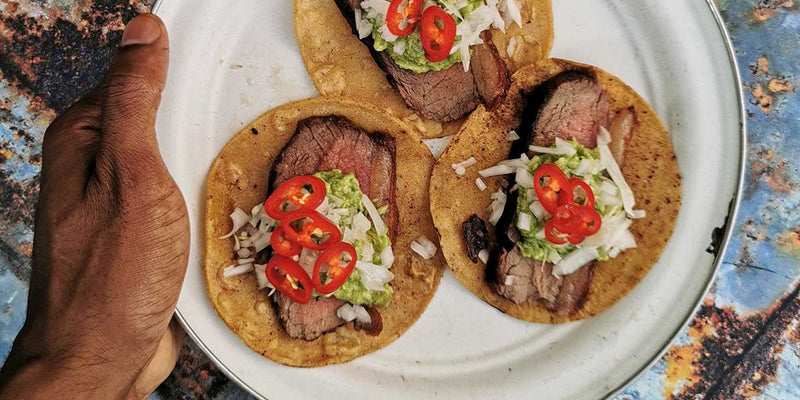
Picanha Tacos With Avocado Salsa
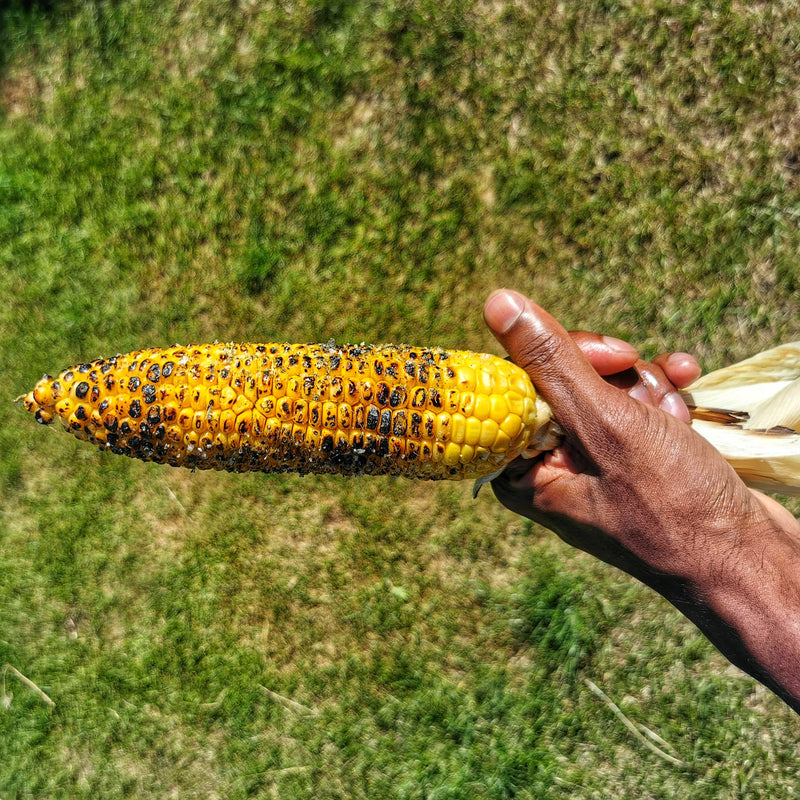
HOW TO MAKE THE BEST GRILLED CORN EVER

Baigan Choka and Grilled Herb Flatbread

Campfire Egg and Avocado Toast


